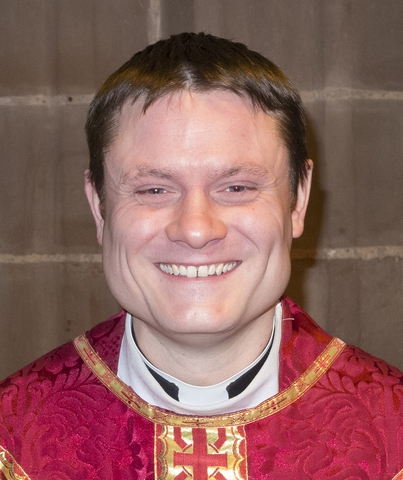
June News From the Clergy
18 May 2022 • From the Clergy
The Christian calendar of saints comes with a definite hierarchy.
At the top is Mary, the mother of Jesus, who receives three separate days celebrating plus her own Sunday of Advent, as well as numerous churches dedicated to her across the world.
In clear second place comes John the Baptist, the patron saint of one of our churches whose patronal festival we celebrate this month. The patronal is held on the day which appears in the calendar as ‘The Birth of John the Baptist’, 24th June, an entirely arbitrary choice made to fit in with the fact that Luke’s gospel says Elizabeth was already six months pregnant with John at the time of the Annunciation (children in the Bible are usually very obedient about confirming to the official maternity handbook). Yet we also have the Beheading (Decollation) of John the Baptist on 29th August, plus the third Sunday of Advent dedicated to him. John also has a co-starring role in the Baptism of Christ, celebrated in January on the First Sunday of Epiphany. No one else is thus honoured. John the Baptist has a special place in Christian life, his words and ministry woven through our story and liturgy.
John’s significance comes from the fact that in Christian theology, he is the bridge between Old and New Testaments. The last in the line of prophets, he is the one who foreshadows and prepares the way for Jesus.
It seems, indeed, that he had his own group of disciples and that this caused some tensions at the start, John’s disciples and Jesus’ disciples wary of one another. There is a link and a cause of disquiet in John being the one to baptise Jesus. Only after John’s death does it appear that his true role became apparent to his own followers, that he was the messenger sent to prepare the way for Jesus. It is that language of preparation which is most associated with our liturgical celebrations of John, especially during Advent.
And it forces us to confront unpalatable elements, for John is hardly the kind of figure one would like to invite for dinner or even the sort of kind, placid character one associates with sainthood. John the Baptist comes across as a much harsher, more challenging figure than Jesus, for his blunt (almost rude) message and totally uncompromising stance is tempered by none of the compassion and gentleness which tempers Jesus’ words and actions. He made little effort to fit in, his habits, dress and attitude not calculated to appeal to the rich and powerful. It is speaking truth to King Herod which costs him his head, but John is not prepared to compromise his disapproval to save his life.
At the heart of John’s message is the importance of truth, above all being truthful with ourselves and facing up to those things of which we need to repent in order to accept Christ in our lives. It is a brutal, often discomforting message, one which many might prefer to turn away from in favour of some of Jesus’ softer words.
That is why John holds such an enduring place in Christianity, and why it remains instructive for us to consider his message today. In a world of fake news, relativisation of opinions until they become as valid as facts, and a refusal by our leaders to be honest or face the consequences of their actions, truth has come to seem like an impossible dream. Yet what John reminds us is that truth, above all with ourselves, is a non-negotiable part of being a Christian, and that this has costs in a world that prefers the comforts of its own deceptions. What John the Baptist showed was that truth is essential to understanding the way of God, for God calls us by name, as we truly are, not behind the masks and acts we may prefer.
Truth is hard, at times almost unbearably so. But it is only through truth that we can recognise the gulf between the world as it is and God’s kingdom. Truth and repentance may not be fashionable in today’s angry, polarised world, but it is only through these that we can pull back from the madness and find our way back to God’s work.
Phil